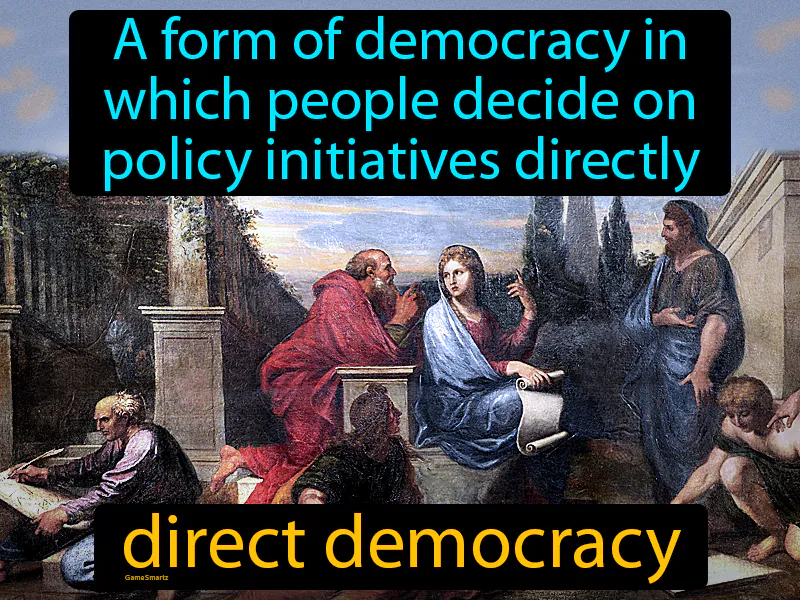Direct Democracy
Direct Democracy: Easy to understand
Direct democracy was a system developed in Ancient Greece, particularly in Athens, around 508 BC, where citizens directly participated in decision-making rather than electing representatives. This was important because it gave ordinary people a voice in government, responding to the problem of power being concentrated in the hands of a few. In such a system, citizens could vote on laws and policies themselves, influencing their community directly. Today, direct democracy still matters because it encourages civic engagement and accountability, similar to when communities vote on local issues or referendums. For instance, when a town holds a referendum to decide on building a new park, everyone’s vote directly impacts the outcome, showing how individuals can shape their surroundings.

Practice Version

Direct Democracy: A body of people convened to render an impartial verdict or to set a penalty or judgment. Direct democracy. Direct democracy is a system where citizens directly participate in decision-making, as seen in ancient Athens.